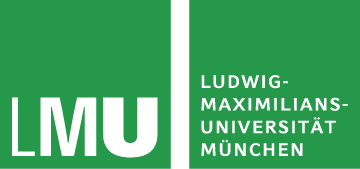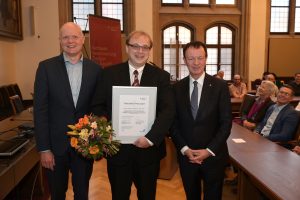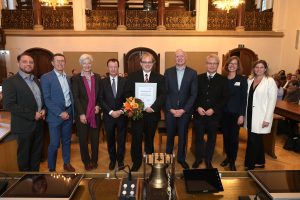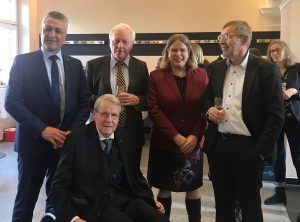New publication
New insights into a cytotoxin adapted to the intracellular lifestyle of typhoidal Salmonella have been published in the journal Nature Communications.
The research group led by Dr. Tobias Geiger has gained insights into the secretion and mode of action of a cytolysin expressed in infected host cells.
Typhoidal Salmonella, such as the serovar Paratyphi A, have strongly adapted to an intracellular lifestyle. After infecting the host cell, they form special compartments, known as Salmonella-containing vacuoles, where the bacteria replicate and produce proteins necessary for spreading within the human body. The latest work by the group led by Dr. Tobias Geiger shows that, in these very vacuoles, a cell-lytic toxin, known as Cytolysin A, is produced by the bacteria and is secreted from the infected host cells via a sophisticated secretion mechanism. Interestingly, this does not lead to the lysis of the Salmonella-infected, toxin-producing host cell. Only after the toxin has exited the cell does it specifically lyse macrophages and erythrocytes in the immediate vicinity.
The findings of this study contribute to a better understanding of the infection process of typhoidal Salmonella and shed light on the use of key pathogenic factors. Detailed and further information can be found in the original article at https://www.nature.com/articles/s41467-024-52745-0.




